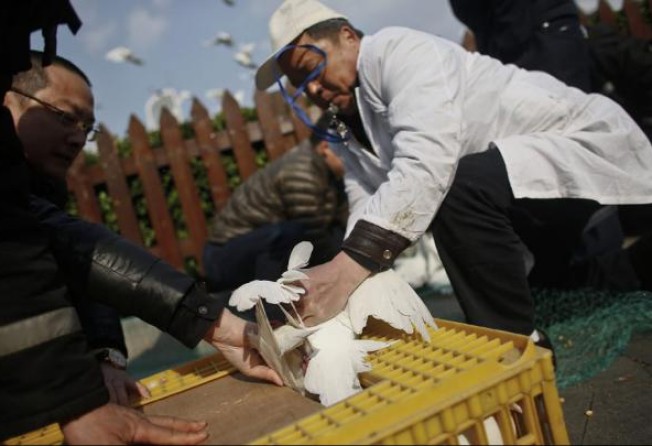Questions fly thick and fast over delay in bird flu report
Several editorials ask if the lessons of Sars outbreak a decade ago were learned; some, though, give officials the benefit of doubt

Memories of the 2002-03 Sars epidemic are deeply embedded in the mainland psyche.
While just about everyone learned about severe acute respiratory syndrome, which killed 774 people worldwide, from the news media, they also remember that mainland officials hid the growing toll from the public for weeks before a wave of deaths and rumours forced authorities to reveal the scale of the epidemic.
It is not hard to understand why many remain wary of what the government does or says in the public-health realm, even though it has repeatedly vowed to promptly disclose any human cases of H7N9 bird flu, the latest killer virus to emerge.
The National Health and Family Planning Commission said last Sunday that only a few cases had been discovered, and that while it was not clear how the victims became infected, there was no evidence of human-to-human transmission.
Most state-owned media outlets, especially in Shanghai, praised the quick reaction - even though the outbreak was not revealed to the public until 20 days after the government detected the first suspected case. Take Shanghai's Oriental Morning Post for example. Its front-page report on Tuesday designed to stem public panic said the Shanghai hospital that admitted the first patient was "very calm". It also had three other big stories explaining how hard it was to control the disease. "It's quick enough to be able to diagnose a new disease in just over 20 days," it said.
Amid all this fawning media coverage, the Shanghai Business Daily fired the first broadside at the authorities. In an editorial on Tuesday entitled "Timely release of information is the key to responding to bird flu", it said one or two press conferences could not ease public concerns and the government had to be more transparent so that an epidemic could be prevented.
Tuesday's China Youth Daily, the Communist Youth League's official paper, was also critical. "People are wondering, why it has been so late for so long in releasing the information? The government believes it revealed the information as soon as possible, but that's still not as fast as the public desired. It's hard to say if the government passed this examination," it said.
The City Express Press in Zhejiang, also affected by the bird flu outbreak, posted an article, "Sars didn't change China", on its official Sina Weibo microblog on Tuesday night, lamenting that "the Sars epidemic a decade ago was an experience of tears and blood".
"A country that can no longer remember that would be a hopeless country and a government that has not reflected on that matter would be an unqualified government," it said. "We hope a similar disaster will not happen again."
The Yunnan City Times said on Wednesday that the Shanghai government would find it hard to earn forgiveness from the public.
"No matter how difficult the diagnosis was, the revealing of H7N9 was still more than 20 days late … sorry to say this, but we didn't see local governments launch much in the way of disease control resources to meet the challenge," it said.
For outspoken media like the 21st Century Business Herald, the long wait was like a "hide-and-seek" game between the government and the public. It said the Shanghai government had dismissed a number of rumours earlier last month that a new type of bird flu virus had been found, and yet those rumours turned out to be true.
But some defended officials. Wednesday's Xiao Xiang Chen Bao, a paper in Hunan, said 10 years after Sars, the central government now had the confidence to face any crisis. "We'd love to believe that what the Shanghai authorities have said is true," the editorial said, not sounding all that confident.
The Global Times, an arm of the Communist Party mouthpiece People's Daily, admitted the government was "still in a passive position in making information public", but people "shouldn't say the government is not doing its job".